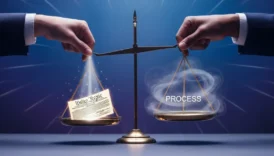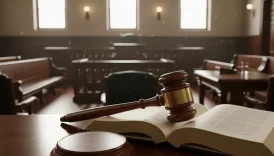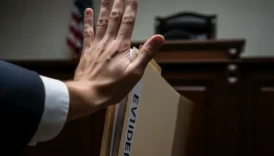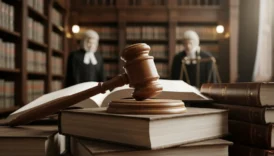Legal Professional Conduct: Definition and Examples
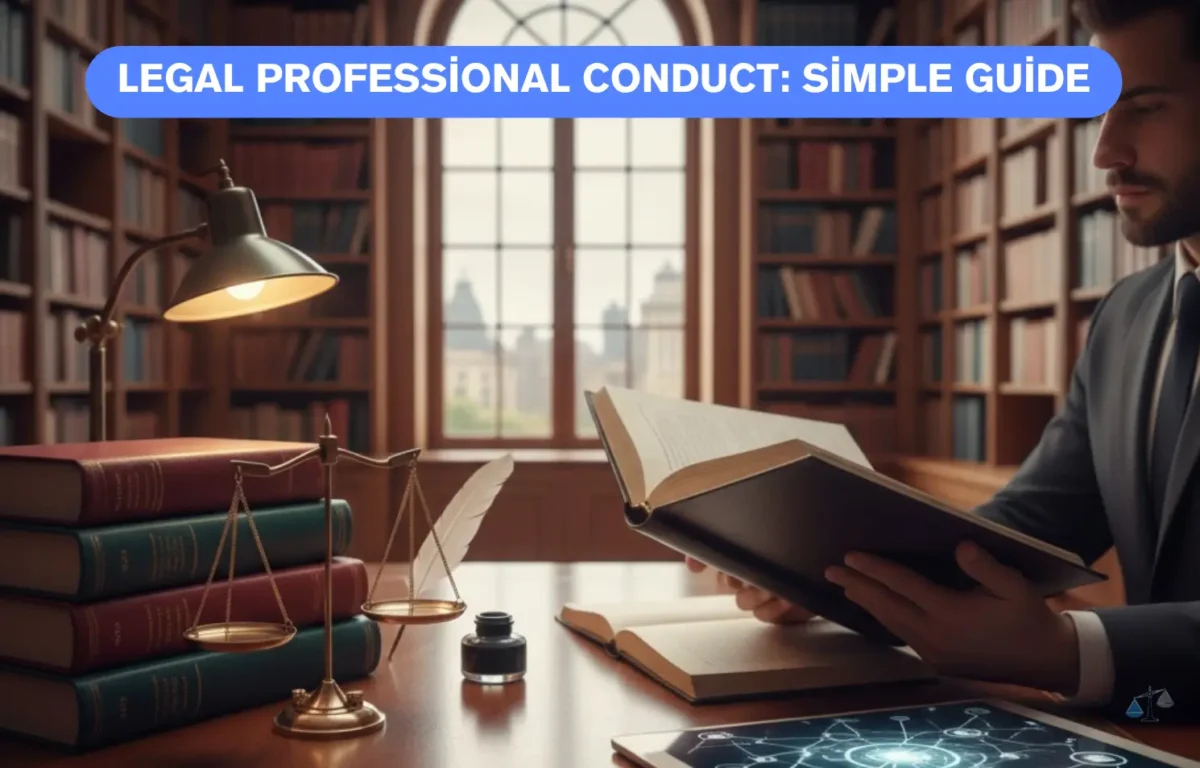
- Legal Professional Conduct: Definition and Examples
- Meaning of Legal Professional Conduct
- The Legal Framework for Professional Conduct
- Key Ethical Foundations:
- Practical Applications for Professional Conduct
- Legal and Practical Importance
- Why It Matters:
- Limitations, Ethics, and Enforcement
- FAQ — Legal Professional Conduct
- What is the purpose of legal professional conduct?
- Who enforces professional conduct rules for lawyers?
- What are the key principles of legal professional conduct?
- Can a lawyer be disciplined for unethical behavior outside of court?
- What happens when a lawyer violates ethical rules?
- Is legal professional conduct the same in every country?
- How can clients recognize unethical conduct?
- Do lawyers receive ethics training?
- What role does confidentiality play in legal ethics?
- Why is honesty so crucial in professional conduct?
- Author & Editorial Note
- Table of Contents For Professional Conduct
- Keywords For Legal Professional Conduct
Simple definition of legal professional conduct: the set of ethical rules and behavioral standards that govern how lawyers, judges, and other legal professionals must act while practicing law. It ensures fairness, integrity, and accountability within the justice system. These standards dictate not just what a lawyer can do legally, but what they should do morally to protect the client’s interest and maintain public trust.
“Lawyers are not only advocates but also officers of the court — their conduct shapes justice itself.”
Meaning of Legal Professional Conduct
Legal professional conduct refers to the ethical and behavioral framework that dictates how members of the legal profession must behave. It covers honesty, confidentiality, diligence, competence, and loyalty to clients while maintaining respect for courts and opposing parties. In the United States, these standards stem mainly from the American Bar Association’s Model Rules of Professional Conduct, which most state bars have adopted with local modifications.
The essence of professional conduct lies in the balance between client advocacy and public responsibility. A lawyer’s first duty is to their client, but not at the expense of truth or justice. For instance, a lawyer may not mislead the court, falsify evidence, or violate confidentiality — even when under pressure to win a case.
Common ethical duties include:
- Competence: A lawyer must provide services with the skill and knowledge reasonably expected in the field.
- Confidentiality: Client information must remain private unless the client consents or law requires disclosure.
- Avoiding Conflicts of Interest: Lawyers must not represent conflicting interests without full disclosure and consent.
- Honesty and Integrity: Misrepresentation to courts, clients, or others is strictly forbidden.
- Duty of Diligence: Lawyers must act promptly and efficiently, avoiding unnecessary delay.
The failure to meet these duties may result in disciplinary sanctions, suspension, or disbarment, depending on the severity of the violation.
The Legal Framework for Professional Conduct
Professional conduct rules derive from state bar regulations, court rules, and disciplinary bodies that enforce them. Every practicing attorney must adhere to these codes to maintain their license. The guiding principle is not merely compliance but upholding the dignity and reliability of the legal profession.
Key Ethical Foundations:
- The Duty to the Client – Lawyers owe loyalty, competence, confidentiality, and zealous advocacy.
- The Duty to the Court – A lawyer must act honestly and respect court orders, ensuring justice is not obstructed.
- The Duty to Opposing Counsel and Third Parties – Professional courtesy, truthful communication, and fairness are essential.
- The Duty to Society – Lawyers must advance the cause of justice, not just private gain.
These duties are interdependent. For example, zealously representing a client does not permit dishonesty before the court. Similarly, safeguarding confidentiality cannot extend to concealing fraud or ongoing criminal conduct.
Ethical oversight mechanisms include:
- Bar Complaints: Clients or judges can file grievances alleging misconduct.
- Disciplinary Hearings: Conducted by the state bar or judiciary panels to determine violations.
- Sanctions: Can range from reprimands and fines to suspension or permanent disbarment.
This framework ensures that professional conduct isn’t theoretical—it’s enforceable and continuously monitored.
Practical Applications for Professional Conduct
The rules of professional conduct apply in every setting—courtroom advocacy, negotiation, corporate transactions, and even social media use by lawyers. In modern practice, technology and confidentiality have become especially significant: data breaches, inadvertent disclosures, and AI-driven legal tools all raise new ethical questions.
Examples in Practice:
| Scenario | Ethical Concern | Required Conduct |
|---|---|---|
| Lawyer posts case details on social media | Breach of confidentiality | Avoid disclosing identifiable client information |
| Representing two business partners in a dispute | Conflict of interest | Obtain informed consent or decline representation |
| Failing to return client calls for weeks | Lack of diligence | Communicate promptly and keep clients informed |
| Making false claims in marketing | Misrepresentation | Ensure all public statements are truthful |
| Using AI-generated briefs without review | Competence issue | Verify all sources and ensure accuracy |
Professional conduct also covers billing transparency, handling client funds, and advertising ethics. Lawyers must not charge unreasonable fees or mislead clients about case outcomes. Trust accounts, used for holding client money, are strictly regulated, and any misuse can lead to disbarment.
In essence, ethical conduct is the invisible infrastructure of legal practice—it sustains credibility, promotes justice, and protects both clients and society.
Legal and Practical Importance
Legal professional conduct is vital for maintaining the rule of law. Without it, public confidence in the justice system erodes. Every ethical rule exists to ensure fairness, respect, and equality before the law. It also provides legal professionals with a moral compass when facing difficult decisions.
Why It Matters:
- Protects Clients: Ensures clients receive competent and honest representation.
- Supports the Judiciary: Upholds integrity and trust in court proceedings.
- Safeguards the Public: Prevents exploitation and malpractice.
- Preserves the Profession: Maintains the law’s credibility as a noble pursuit, not just a business.
Violations can have far-reaching effects: wrongful convictions, lost public faith, and systemic injustice. That’s why many jurisdictions require annual ethics training and certification for attorneys to continue practicing.
In sum, legal professional conduct transforms law from a mere profession into a public trust—one that depends on the conscience, discipline, and accountability of every lawyer.
Limitations, Ethics, and Enforcement
Even with strong ethical codes, real-world enforcement can be complex. Not every lapse constitutes a violation; context matters. For instance, a delay in communication might warrant a warning, while misappropriating client funds demands disbarment.
Common disciplinary measures:
- Private Reprimand – Non-public warning for minor breaches.
- Public Censure – Published statement of misconduct.
- Suspension – Temporary loss of license.
- Disbarment – Permanent removal from the bar.
Ethics boards weigh intent, harm, and repetition. Lawyers are also encouraged to self-report mistakes and cooperate with investigations as a sign of integrity.
Ultimately, the system relies on self-regulation. The credibility of the entire legal field depends on lawyers’ willingness to uphold these standards—not because they must, but because they believe in them.
FAQ — Legal Professional Conduct
What is the purpose of legal professional conduct?
Its purpose is to maintain ethical integrity in the legal system. It ensures lawyers act honestly, competently, and fairly toward clients, courts, and society. These standards protect public confidence in justice and prevent misconduct or abuse of power.
Who enforces professional conduct rules for lawyers?
Professional conduct is enforced by state bar associations or equivalent regulatory bodies. They investigate complaints, conduct hearings, and impose sanctions such as suspension or disbarment when necessary.
What are the key principles of legal professional conduct?
The main principles include honesty, confidentiality, competence, diligence, avoidance of conflicts of interest, and respect for the legal system. Together, they form the moral and ethical foundation of legal practice.
Can a lawyer be disciplined for unethical behavior outside of court?
Yes. Professional conduct rules apply to both professional and personal behavior when it affects a lawyer’s fitness to practice law. Fraud, dishonesty, or criminal acts outside legal work can still lead to disciplinary action.
What happens when a lawyer violates ethical rules?
Depending on the severity, the lawyer may receive a reprimand, suspension, or be permanently disbarred. In cases involving fraud or theft, criminal prosecution may also follow.
Is legal professional conduct the same in every country?
No. While most legal systems share similar ethical values, each jurisdiction sets its own rules. In the U.S., these are modeled after the ABA’s guidelines, but other countries like the UK or Canada have their own codes.
How can clients recognize unethical conduct?
Warning signs include lack of communication, unexplained fees, false promises, or refusal to provide invoices. Clients should report serious issues to their jurisdiction’s disciplinary authority.
Do lawyers receive ethics training?
Yes. Continuing legal education (CLE) in ethics is mandatory in most jurisdictions. Lawyers must complete these courses to maintain their license and stay updated on evolving ethical standards.
What role does confidentiality play in legal ethics?
Confidentiality is central. A lawyer must protect all client information, even after representation ends. This duty builds trust and allows clients to speak freely without fear of exposure.
Why is honesty so crucial in professional conduct?
Because the entire justice system relies on truth. Misrepresentation to a client, court, or opposing counsel damages credibility and undermines fairness—the foundation of law itself.
Author & Editorial Note
Author: Legal Terms
Last Updated: October 2025
Disclaimer: This content is for general educational purposes about legal ethics and professional conduct. It does not constitute legal advice.
Table of Contents For Professional Conduct
Keywords For Legal Professional Conduct
- Legal Professional Conduct
- Meaning of Legal Professional Conduct
- The Legal Framework for Professional Conduct
- Practical Applications for Professional Conduct
- Legal and Practical Importance
- Limitations, Ethics, and Enforcement

